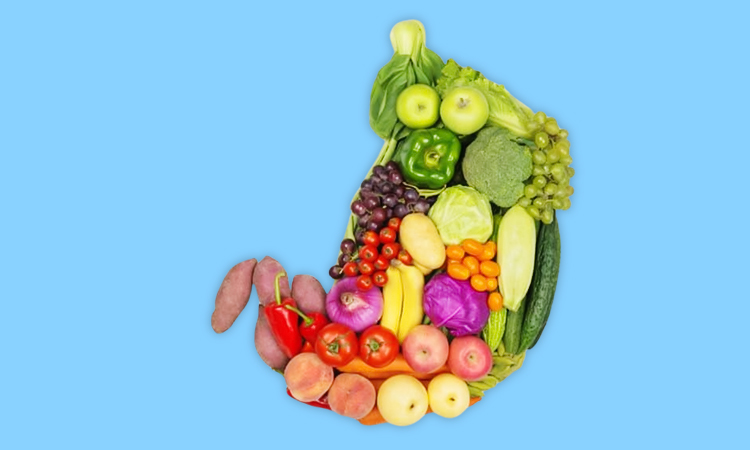
A healthy digestive system is the foundation of overall well-being. When your digestion is working efficiently, your body absorbs essential nutrients properly, leading to better energy levels, improved immunity, and enhanced overall health. One of the key factors in maintaining a strong digestive system is ensuring you have sufficient digestive enzymes. These enzymes help break down food into smaller components, making it easier for your body to absorb nutrients. In this blog, we will explore the top foods that help boost digestive enzymes for optimal digestion, along with some tips to support a healthy gut.
Understanding Digestive Enzymes and Their Importance
Digestive enzymes are proteins produced by the body that play a crucial role in breaking down carbohydrates, proteins, and fats. The main types of digestive enzymes include:
Amylase – Breaks down carbohydrates into simple sugars.
Protease – Helps in protein digestion by breaking them into amino acids.
Lipase – Assists in fat digestion by breaking down fats into glycerol and fatty acids.
Without sufficient digestive enzymes, food may not be properly broken down, leading to issues like bloating, indigestion, and nutrient deficiencies. Luckily, certain foods are rich in natural digestive enzymes and can help improve digestion effectively.
Top Foods That Boost Digestive Enzymes
1. Pineapple
Pineapple contains bromelain, a powerful enzyme that helps break down proteins. Bromelain is especially beneficial for individuals who have trouble digesting meat or dairy. It also has anti-inflammatory properties that promote gut health and digestive enzymes production.
2. Papaya
Papaya is rich in papain, an enzyme that helps digest proteins efficiently. This fruit is particularly useful in preventing bloating and constipation. Eating fresh papaya or drinking papaya juice can provide a natural way to boost digestive enzymes.
3. Fermented Foods (Yogurt, Kefir, Sauerkraut, Kimchi)
Fermented foods are excellent for gut health as they contain probiotics and natural enzymes that aid digestion. These foods help balance gut bacteria, enhancing the body’s ability to digest and absorb nutrients properly. Regular consumption of fermented foods supports gut health and digestive enzymes production.
4. Bananas
Bananas are not only a good source of fiber but also contain amylase and maltase, two enzymes that help break down carbohydrates into simple sugars. Eating bananas before a meal can stimulate digestive enzyme activity, improving overall digestion.
5. Avocados
Avocados contain lipase, an enzyme that helps in fat digestion. If you struggle with digesting fatty foods, adding avocados to your diet can enhance enzyme function and prevent digestive discomfort.
6. Ginger
Ginger stimulates the production of digestive enzymes, especially protease and lipase. It also has anti-inflammatory properties that can help soothe an upset stomach and improve digestion. Drinking ginger tea or adding fresh ginger to meals can be a great way to support digestive health.
7. Honey
Raw honey is a natural source of diastase, amylase, invertase, and protease, making it one of the best natural enzyme-rich foods. Consuming raw honey regularly can help break down different food components and support digestion.
8. Mangoes
Mangoes contain amylase, an enzyme that helps digest carbohydrates and starches. This fruit is particularly useful in promoting easy digestion, especially when eaten ripe.
9. Kiwi
Kiwi is packed with actinidin, a natural enzyme that aids in protein digestion. Eating kiwi regularly can help reduce bloating and discomfort after meals.
10. Apple Cider Vinegar
Apple cider vinegar contains acetic acid, which enhances enzyme activity and promotes better digestion. Consuming a small amount of apple cider vinegar before meals can stimulate digestive juices and prevent indigestion.
Additional Ways to Boost Digestive Enzymes Naturally
While consuming enzyme-rich foods is essential, adopting certain lifestyle habits can further enhance digestive enzyme activity. Here are some additional tips:
Chew Your Food Properly: Digestion starts in the mouth, and chewing food thoroughly helps activate digestive enzymes.
Stay Hydrated: Drinking enough water supports enzyme function and ensures smooth digestion.
Manage Stress: High stress levels can reduce enzyme production. Engaging in relaxation techniques can improve digestion.
Consider the Best Supplements for Digestive Enzymes: If you have enzyme deficiencies, high-quality supplements can help enhance digestion and nutrient absorption.
Prioritize Gut Health: A healthy gut microbiome supports enzyme activity and overall digestion.
The Connection Between Stress and Digestion
Stress can significantly impact digestion by slowing down enzyme production. A relaxed mind allows your body to produce digestive enzymes effectively, leading to better nutrient absorption. Implementing stress-free sleep solutions like meditation, deep breathing, and maintaining a bedtime routine can improve overall digestive health.
Conclusion
Optimizing digestion is crucial for overall health, and consuming enzyme-rich foods can help boost digestive enzymes naturally. Pineapples, papayas, fermented foods, bananas, avocados, ginger, and other natural sources of enzymes can significantly enhance digestion. Additionally, maintaining a healthy lifestyle, managing stress, and considering the best supplements for digestive enzymes can further support digestive health. By incorporating these strategies, you can improve nutrient absorption, reduce digestive discomfort, and promote overall well-being.